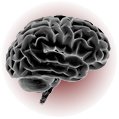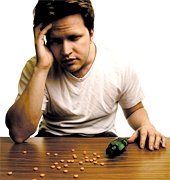To Your Health
May, 2007 (Vol. 01, Issue 05) |
|
|
What Does Your Pain Tell You?
By Burl Pettibon, DC, FABCS, FRCCM
According to Ben Franklin, "In this world, nothing is certain except death and taxes." Unfortunately, you can add one more troubling reality to that list: pain. We all experience pain at some point in our lives, and we all want to avoid it, of course. If we are in pain, it usually means something bad is happening to our bodies. Pain is nature's signal to tell us, "Pay attention. Your body is being damaged. You need to make an adjustment to heal this damage and prevent it from happening again."
It's All Relative
When trying to evaluate the level of pain you are in, keep the frog story in mind. What is the frog story? If you drop a frog into boiling water, it will immediately jump out of the pot. However, if you place a frog in a pot of cold water and heat the water gradually, the frog will remain and literally allow itself to cook to death. Perhaps a bit gruesome, but true.
 The same can be said for human beings. A person who is normally not in pain may come into their doctor's office and report they have an ailment with a pain level of "9" on a scale of 1-10. A person who has been dealing with a chronic problem for years may come into the office and report a pain level of "4," even though clinically, they are much worse off than the person claiming to be a "9" and have sustained much more damage to their body. Like the frog, if pain comes on gradually and gets progressively worse, a person may not realize the degree of their physical dysfunction until it's a serious health issue.
The same can be said for human beings. A person who is normally not in pain may come into their doctor's office and report they have an ailment with a pain level of "9" on a scale of 1-10. A person who has been dealing with a chronic problem for years may come into the office and report a pain level of "4," even though clinically, they are much worse off than the person claiming to be a "9" and have sustained much more damage to their body. Like the frog, if pain comes on gradually and gets progressively worse, a person may not realize the degree of their physical dysfunction until it's a serious health issue.
You've Got Pain - Now What?
One option far too many Americans race toward to deal with pain is over-the-counter and even prescription drugs. There are several reasons for reconsidering this option. First of all, as mentioned earlier, pain is a way for our bodies to tell us, "Hey, you need to fix something; you are harming your body." If you take a drug to temporarily mask the pain, you are ignoring this message and allowing the damage to continue.
 Unfortunately, too much of mainstream health care offers solutions that address the symptom, rather than the cause. Not to mention that any pharmaceutical solution comes with a host of potential side effects. There's no getting around this reality - just read the warning label or insert that accompanies any medication. What's worse, some people get into a harmful cycle of taking pain pills and then taking additional drugs to cover up the side effects of the original drug!
Unfortunately, too much of mainstream health care offers solutions that address the symptom, rather than the cause. Not to mention that any pharmaceutical solution comes with a host of potential side effects. There's no getting around this reality - just read the warning label or insert that accompanies any medication. What's worse, some people get into a harmful cycle of taking pain pills and then taking additional drugs to cover up the side effects of the original drug!
In a sense, taking a pill is the easy way to avoid dealing with the pain. It requires no effort whatsoever. Unfortunately, too many people in America find the easiest solution the most attractive. In the real world, that's rarely the best approach.
Why Are You Hurting?
If you have pain, your first task is to try to discover what your body is telling you. There are many potential sources of your pain. Assuming you aren't suffering from an acute injury (for example, a muscle strain or tear that occurs while working out or lifting a heavy box, etc.), here are some potential pain sources to consider:

